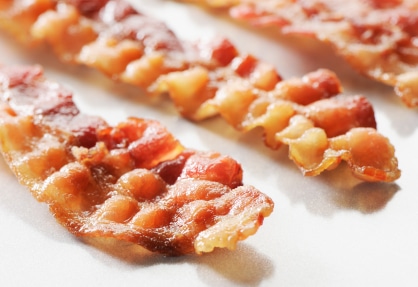 What is the Keto Diet?
What is the Keto Diet?
The keto diet is short for the ketogenic diet and is characterized as a diet that is high in fat, moderate in protein, and very low in carbohydrates. The purpose of the keto diet is to get the body to burn fat for calories rather than sugars/carbohydrates. When the body burns fat it is said to be in a state of ketosis as the body turns fats into ketones which are molecules it can use to supply energy.
In recent years the keto diet has been getting more attention as if it were a new diet. But, it is not new. It has been used for about 100 years to treat seizures, especially in children. It was popularized by Dr. Atkins of the Atkins diet in the 1970s. His diet started with a very strict two-week ketogenic diet.
The makeup of the Keto Diet
The keto diet is high in fats and proteins in the form of meats, processed meats, eggs, cheeses, fish, nuts, butter, oils, and seeds. The carbohydrate content of the diet typically ranges from 20 to 50 grams. It takes two to four days of a ketogenic diet before the body will switch to burning fats for fuel rather than carbohydrates.
Medical Conditions and the Keto Diet
The keto diet is most frequently used to lose weight and to improve metabolic syndrome – a cluster of conditions including hypertension, diabetes or abnormal blood sugar control, and abnormal lipid profile (cholesterol and triglycerides). There is evidence that low carbohydrates are effective in losing weight. Here is another study. Compared to low-fat diets and the Mediterranean diet, the keto diet leads to faster weight loss, though the difference diminishes with time.
Its effects on cholesterol are mixed. In some individuals, cholesterol improves, and in others, it may get worse.
The keto diet improves blood sugar control in patients with type 2 diabetes which would not be surprising as it limits the intake of sugar and carbohydrates.
Its effectiveness in managing seizure disorders has led to use in other neurologic conditions like Alzheimer’s disease, Parkinson’s disease, multiple sclerosis, autism, and sleep disorders but there are no long-term studies to support its use in these conditions.
People with kidney disease exercise caution with the keto diet as the protein content puts an additional strain on the kidneys.
Keto Diet and Weight Loss
Weight loss is the main reason many individuals turn to the keto diet. We are facing an obesity epidemic in which 2.8 million people now die each year from obesity-related health issues.
One key feature of the keto diet for weight loss is because of its protein content it preserves muscle. This means that the weight being lost is coming from fat. With other diets, there is generally some loss of muscle along with fat. Also, there is typically greater weight loss with the ketogenic diet compared to other diets even when total calorie intake is matched.
There are several mechanisms by which a ketogenic diet promotes weight loss.
- increased fat burning
- appetite suppression
- improved insulin sensitivity
- high protein intake
- gluconeogenesis
Increased Fat Burning
This is not surprising. The purpose of the keto diet is to use fat as an energy source.
Appetite Suppression
The high protein content delays the emptying of food from the stomach providing a sense of satiety. Thus, we typically eat less. Also, appetite hormones like leptin and ghrelin are better regulated on high protein diets.
Improved Insulin Sensitivity
The keto diet improves insulin sensitivity. Insulin is released in response to a meal and drives glucose into the cells. When the net carbs in a diet are high more insulin is required to drive the glucose into the cells. Over time the body becomes resistant to insulin when levels are consistently high. Since a keto diet contains few carbs there is less insulin production and sensitivity to it improves. Insulin is the main fattening hormone so it is desirable to keep insulin levels as low as possible throughout the day.
High Protein Intake
The higher protein intake on the keto diet in and of itself facilitates weight loss. As mentioned above high protein intake acts as an appetite suppressant. Higher protein also increases metabolism meaning the body will burn more calories. It protects muscle mass. Muscle burns 2-3 times as many calories as an equivalent amount of fat. Plus, protein helps stimulate hormones like growth hormone and testosterone which help burn fat and build muscle.
Gluconeogenesis
Gluconeogenesis is a process whereby the body converts fats and proteins into glucose for fuel. This process seems to burn additional calories. This would be a similar concept to thermogenesis where the body burns calories to digest foods.
Keto Diet and Metabolic Syndrome
Metabolic syndrome is a constellation of medical problems and includes high blood pressure, obesity, abnormal blood glucose levels, and abnormal cholesterol levels. All of these are affected by elevated insulin levels. By lowering insulin levels the ketogenic diet can be effective in treating metabolic syndrome especially type 2 diabetes. This study showed a 75% reduction in insulin levels after just 2 weeks of a ketogenic diet. And, this study showed a 16% lowering of blood glucose on a keto diet followed for 16 weeks.
Pitfalls of the Keto Diet
Following a ketogenic diet is challenging in the long run primarily because of its severe restrictions on carbohydrates which usually account for 50% of the calories of most individual diets. Veggies would be the preferred carbohydrate as they tend to be more filling and are low in calories. But, veggies tend to be the least desirable carbohydrates for many. Also, there can be a tendency for individuals to eat poor quality fats rather than healthy fats.

Also, it may be easier to simply remember the foods you should not eat which include:
- sugars
- starches and grains
- fruits
- root vegetables
- legumes
- unhealthy fats like vegetable oils and mayonnaise
To improve chances of following the keto diet and make meal planning easier it may be helpful to just pick a couple of foods in the fat, protein, and carbohydrate categories and eat them frequently but prepare them differently for some variety.
Be sure to get minerals in the diet and use supplements if necessary like magnesium. The ketosis that occurs can disrupt fluid and mineral balances.
You should be aware that the ketosis that occurs from the ketogenic diet can cause bad breath. It is not an oral hygiene issue, either. So you can brush your teeth and floss all you want but it will not help the problem. Mouthwashes can help some and sucking on candy is not desirable because even no-sugar candies tend to be high in carbohydrates. The bad breath simply comes with the diet. So if your breath is bad you know you are adhering to the diet properly – that’s the good news. Everything comes with a price.
